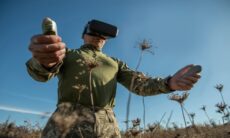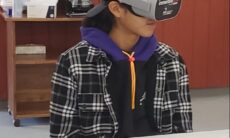Western Technical College’s New VR Lab Puts Students in High-Stakes Situations
In the near future, Western Technical College public health and safety students will have access to extended reality technologies that will allow them to practise situations that closely mimic fieldwork. The institution declared that its recently finished XR Lab is now prepared for full usage in the classroom. In order to provide students real-life experiences without the hazards involved, the lab will replicate medical procedures, public emergencies, and other high-pressure scenarios.
To incorporate the new technology into the curriculum, educators and simulation experts have been creating a variety of simulated scenarios for the past two years. Without the necessity for direct, in-person interaction, these virtual sets provide students the opportunity to diagnose patients and administer treatments in a realistic setting.
The lab needed an expenditure of around $100,000, according to Kevin Dean, Western’s Dean of Health and Public Safety. The technology and software were especially tailored to the college’s requirements. The selected software platform offers a versatile and adaptive learning tool that can be altered and customised by the college’s own simulation experts and technicians.
A mix of grants, school cash, and contributions provided the XR Lab’s funding. The initiative, which took almost three years to finish, uses state-of-the-art technologies to improve learning experiences.
Students have access to the newest virtual reality technology in the lab thanks to the use of Meta Quest 3 headsets and Acadicus teaching software. The lab offers augmented reality goggles as well, which allow students to superimpose virtual data on actual surroundings, enhancing their practical experience.
According to Jamie Howell, a Western simulation specialist, the virtual reality technology is not just for use on campus. Without having to leave their service areas, the equipment may be deployed and transported to first responders who are in need of training. This mobility is especially helpful in rural areas, where first responders may keep current without leaving their service zones by receiving enhanced training directly from the source.
At Western Technical College, virtual reality technology is anticipated to go beyond health and public safety education to include advanced manufacturing, law enforcement, and agriculture. To give students more possibilities for hands-on learning, the institution is actively looking into integrating VR technology into these areas.










